With any film festival, there’s always going to be a mixed bag of movie quality. Some are exceptional without any need for asterisks or further qualification, while others are good “for a first time director” or have an interesting idea or performance that elevates the rest of the film. Then there are many that are just okay, with highlights across the board, but ultimately aren’t too noteworthy or memorable. Lastly, there are those wretched films that somehow got passed through by a programmer that makes one question what anyone ever saw in that movie. SXSW 2017 was no different, with its own assortment of various tiered films.
Luckily, out of the 26 movies I caught, most were very good (and most of them recounted below), a handful were just okay, and only two were pretty awful with very little saving graces. Perhaps the most interesting twist is that at least three of the big Hollywood films (Baby Driver, The Big Sick, The Disaster Artist) were really good, while the other offerings from established studios were mostly unexceptional in every way. It was a year that covered many topics with some recurring themes — sexual trauma, revenge, power of music. The Midnighters section was surprisingly lacking this year, with one clear standout (see below), but otherwise the film was stacked with some excellent examples of cinema, and even a few that will stand the test of time as classics of the genre.
Prevenge (dir. Alice Lowe (III))

Alice Lowe’s debut as sole writer and director is an excellent hybrid of dry British humor crossbred with gonzo-horror premise. A pregnant woman is compelled, possibly by the voice of her unborn child, to seek revenge on others in bloody and spectacular fashion. The humor is coal-black and great, and there are many excellent sequences that work well to meld the tension of horror with hilarious dialogue to underline the absurdity of it all. It’s a completely unique plot, built on many revenge movies of the past, but works so well because of the myriad tones Lowe is able to synthesize together into one coherent piece.
The Transfiguration (dir. Michael O’Shea)
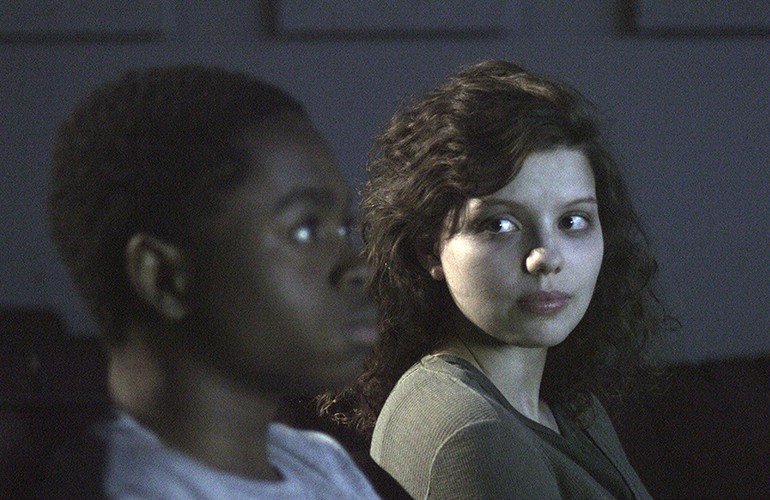
Michael O’Shea’s filmmaking debut is mostly a good one, fueled by an interesting premise, strong performances, and a unique setting not often showcased in horror films. It’s a bit of a misnomer to label it a “vampire film,” as it’s more in line with either Romero’s Martin or even Henry: Portrait Of A Serial Killer as it depicts a budding sociopath’s attempt to direct his darker impulses and mesh them with his fantastical beliefs. The two leads (Eric Ruffin and Chloe Levine) are outstanding as two young people stuck in a wasteland without much hope, and bring a lot of smart character decisions to their portrayals that seem beyond their young ages. While the film underscores some of its narrative — often stating out loud something that audiences can easily infer — that’s to be expected of a first-time writer/director who is uncertain if viewers will pick up on the subtleties. Still, it’s a strong debut that is unflinching in its depiction of outsiders and willing to wallow in the darkness of their minds and lives.
Hounds of Love (dir. Ben Young)
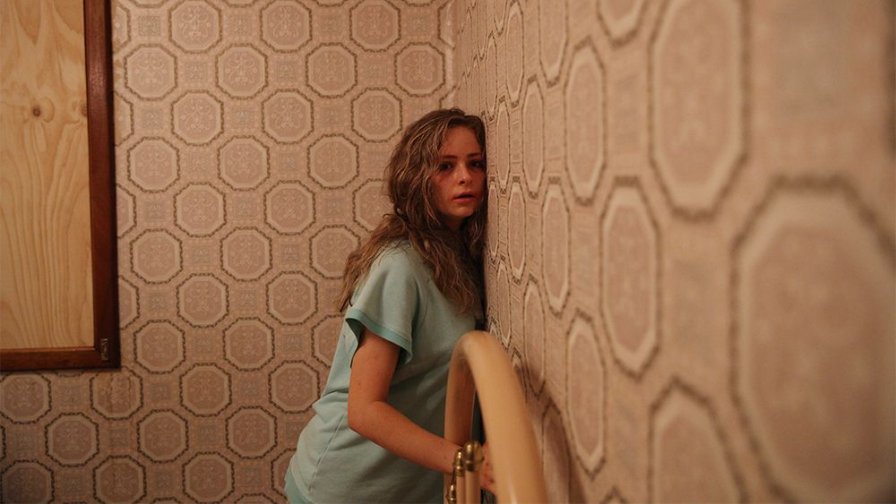
Another breakout feature-length debut, this time from writer/director Ben Young, Hounds Of Love is incredibly well-stylized, fueled by tremendous performances from its actors and a shocking amount of restraint from the filmmaker. The film is disturbing, ratcheting up the tension in a masterful way, but it never feels exploitative or indulgent thanks to Young’s ability (aided by his cast) to humanize its participants. The story of a couple that kidnap, sexually assault, and torture high school girls should be the stuff of grindhouse fare, but Young elevates it to a much more artistic exploration of survival, love, and the twisted devotion that the worst of abusers can inspire amongst others. It’s not a comfortable or easy watch, but it is a strong film that defies its genre roots to be an artful examination of an extreme event.
Baby Driver (dir. Edgar Wright)

Edgar Wright’s fifth film (and first time writing without a partner) was perhaps my most anticipated film of SXSW and 2017. I’m a devotee of Wright’s kinetic direction, cracking dialogue, and whip-smart editing, so I was curious to see what he would do in the crime genre. What Wright delivered — while still owing to works like Walter Hill’s The Driver and even Refn’s Drive — is an utterly original mashup of the pulp thriller with the musical, as diegetic songs accompany and even fuel every moment of the movie. Great stunts, car chases, and action sequences are perfectly executed to a great beat, while the cast (including Ansel Elgort, Jamie Foxx, Jon Hamm, Kevin Spacey, and others) turn in some gritty and fun noir character work. The ending doesn’t quite work as well as it should, and takes away some of the punch of the movie, but the rest of it is so good and original it’s easy to forgive and simply enjoy the 95% that did work like gangbusters.
The Disaster Artist (dir. James Franco)

It would’ve been very easy for James Franco to have turned the making of Tommy Wisseau’s The Room into an extended joke, complete with awful impressions of the “auteur” and merely relying on awkward references to the cult classic. Instead, The Disaster Artist emerged as my favorite film of SXSW 2017 because not only is it hilarious, but it is a sincere and heartfelt depiction of a man struggling with his place in the world and an artist struggling to realize his (rather unfortunate) vision. A spiritual successor to Ed Wood, The Disaster Artist is the story of a dreamer whose visions far surpass his talents, and the tension that emerges between those two realities. Franco’s performance as Wisseau avoids being a caricature, but instead is a lived-in, sympathetic portrait of an enigmatic man who simply wants to be loved. It’s a touching film that speaks to the artistic dreamer in all of us, while still being hilarious due to all of the (true) absurd shenanigans that occurred in the making of the film.
Tragedy Girls (dir. Tyler MacIntyre)

My second favorite film of the festival, and clearly the best of the Midnighter program, Tyler MacIntyre’s Tragedy Girls is an utterly fun romp into dark comedy and horror tropes. Depicting two girls’ obsession with status, built on the backs of a horrible murder spree in their hometown by a masked slasher, the film feels like a social media-infused version of Heathers meets Behind The Mask: The Rise Of Leslie Vernon. It’s funny, raucous, and very smart about the various genre clichés it uses and subverts, all while delivering an engaging film firing on all of its multiple levels. A takedown of online celebrity, a Mean Girls-esque satire of high school hierarchies, and a love letter to horror conventions, Tragedy Girls is a great film that will leave audiences cheering thanks to its wit and heart.
Patti Cake$ (dir. Geremy Jasper)
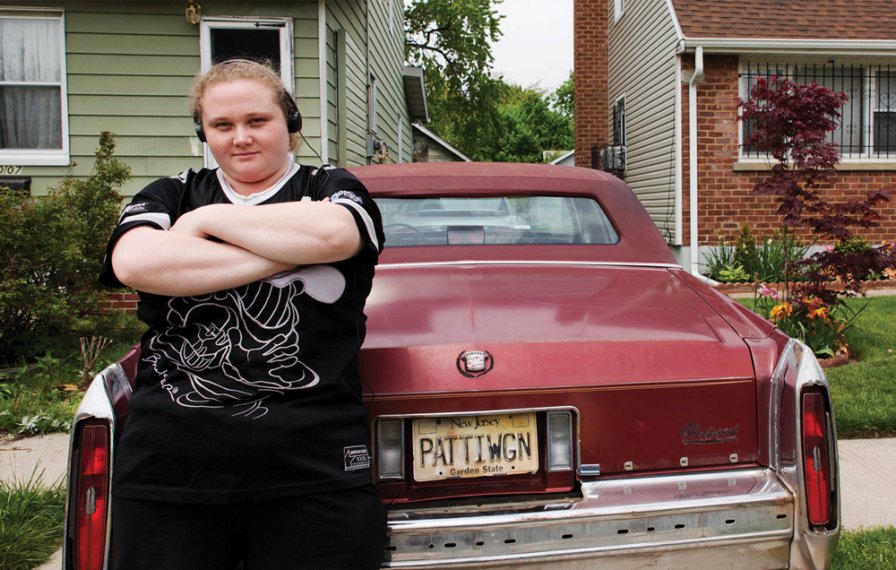
Already receiving a ton of buzz after its premiere at Sundance, Geremy Jasper’s Patti Cake$ deserves all of the hype with its sincere but ridiculous take on the musical underdog subgenre. Played like 8 Mile seen through a quirky indie filter, the movie tells the story of three outsiders in New Jersey with dreams of escaping their downtrodden fates through music. While not particularly realistic, it does still treat its characters like real people, with motivations and arcs that viewers can follow and with which they can sympathize. The songs are incredibly catchy, and the performances don’t feel like cardboard cutouts of “funky” figures that are just made for laughs or randomness. While the story is a might predictable, I think this film will be a sleeper when it’s released by Fox Searchlight, eventually accumulating a cult following of people who can’t help but join in the infectious joy that comes with the struggle of the main characters.
Small Town Crime (dir. Eshom Nelms/Ian Nelms)
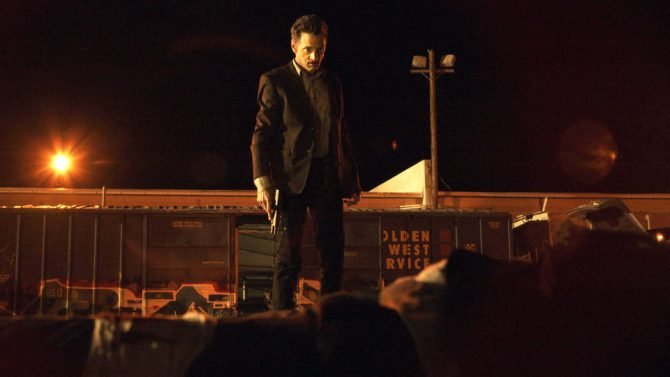
Small Town Crime, by fraternal filmmakers Eshom and Ian Nelms, plays like a grittier version of a Shane Black detective story. There’s less lightheartedness and more grounded action in the Nelms’ movie than a Black film, but intriguing characters that spout pithy and memorable dialogue populate it. John Hawkes continues to impress in his role as a disgraced cop turned private detective who finds himself in way over his head with a case of a dead girl. With nods to Raymond Chandler and various neo-Westerns, the film is an exciting dive into a seedy world, entertaining and engaging throughout. There are plenty of twists and turns, and strong performances from every member of the cast.
Most Beautiful Island (dir. Ana Asensio)
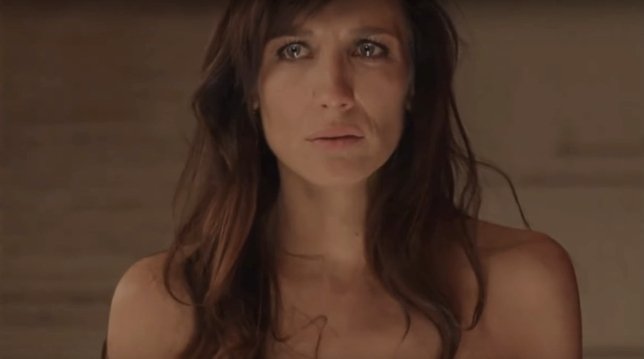
Ana Asensio’s Most Beautiful Island is a strong movie that centers around a narrative twist that arrives late in the game. So, to avoid spoiling it, as that is part of the perverse pleasure of this film, all I will say is the film is about a haunted immigrant struggling to survive in NYC. It’s a clash of classes as the poor are subjugated for the ultra-rich, and it becomes clear that dreams of a better life, or at the very least an escape from the past, can come with a hefty price tag. Asensio’s movie does a great job establishing the world of New York populated by the invisible working class just trying to get by before quickly ratcheting up the tension in the third act to reveal the shadowy undercurrent that exists in any bifurcated society. Excellent debut by the writer, director, and lead; it’s an occasionally tough film, but the payoff is worth it as Asensio is incredibly assured in the journey she’s taking the audience.
